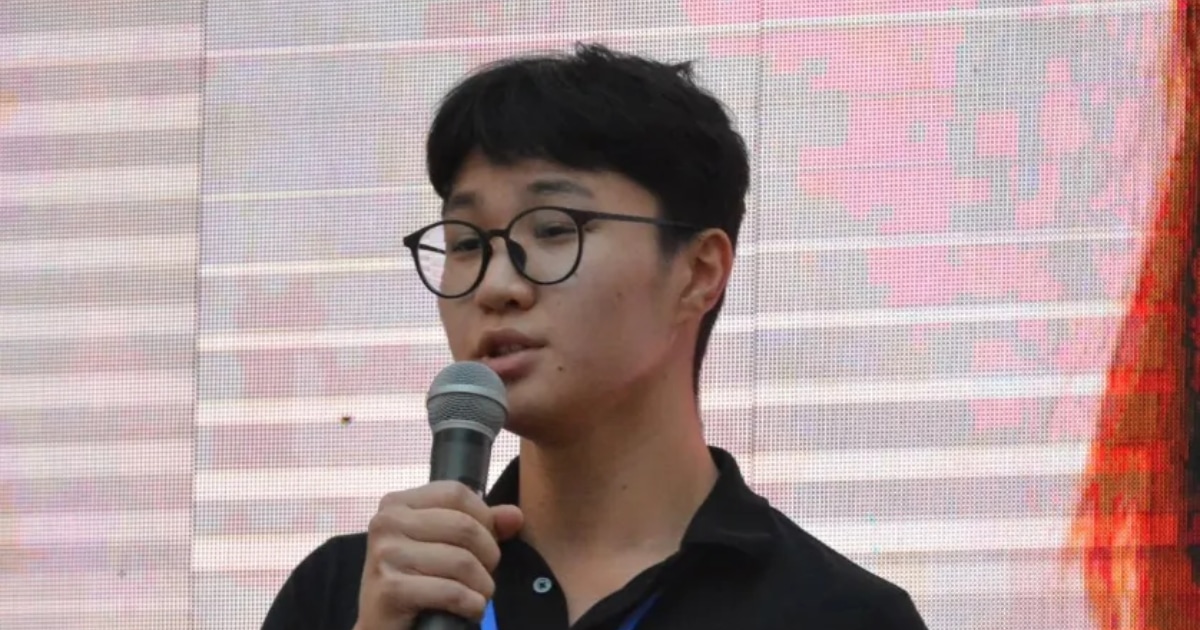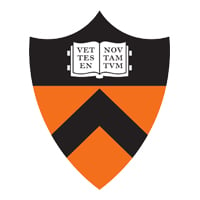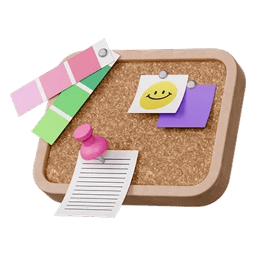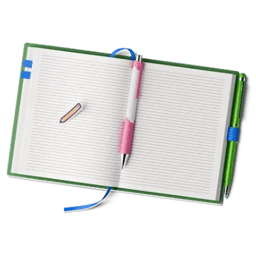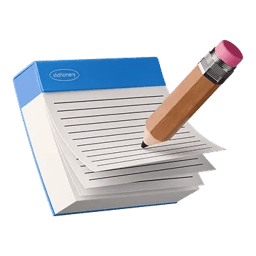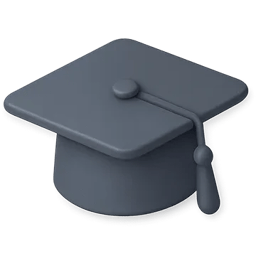My Background
I’m Aikhan, and I’m from Bishkek, Kyrgyzstan. I went to Bishkek International School, a private school where we followed the IGCSE curriculum in grade 10 and then switched to the International Baccalaureate (IB) in grades 11–12. In the IB, I took Physics HL, Computer Science HL, Math AA HL, English A SL, Russian B SL, and Economics SL. Honestly, Economics was tough for me—it just didn’t click—but I really enjoyed Computer Science, Physics and Math.Since I was a kid, I’ve always been fascinated by computers. I loved learning about the small components inside and imagined commanding a computer to do things. That curiosity led me to programming. But after a while, I realized there was more to it than just basic coding. Writing “Hello, World” in Python was fun at first, but I wanted to go deeper. That’s why I decided to pursue computer science seriously, and that decision eventually led me to apply to universities in the United States.

Why the U.S.?
There are many reasons I chose the U.S. for my education. Of course, it has some of the best universities in the world. But for me, it was also personal. My dad got his MBA from Harvard, and I’ve seen how much that experience shaped him. He’s smart, wise, and successful—someone I really look up to. He’s my role model, and I want to follow in his footsteps.
Another big reason is the kind of person I want to become. I want to grow not just academically, but as a person—wiser, kinder, more open-minded. I believe studying in the U.S. will help me do that. I'm not just chasing education. I’m chasing life experience, diversity, leadership opportunities, and friendships that will stay with me for life.
My Stats
My GPA was 3.9 out of 4.0. I got a 1530 on the SAT—730 in English and a perfect 800 in Math. My predicted IB score was 45 out of 45. I didn’t take IELTS because I was already taking English A in school.
Why Princeton?
To be honest, Princeton wasn’t always my top choice; it was Stanford because I liked the idea of being in Silicon Valley. But when I got into Princeton, I was genuinely surprised and thrilled. Princeton is known for being research-oriented, especially in mathematics, which fits really well with my interests and background. A Princeton alum once told me that the school really values students who love math, even in unrelated majors.
My honors list included achievements in math Olympiads, and that definitely helped my case. But what drew me even more to Princeton was its interdisciplinary approach. The freedom to collaborate across departments, the chance to work on tech and linguistics together. It felt like true academic liberty.And Princeton isn’t just about studying all day. A friend of mine who’s already there told me they have parties every week, but students are also constantly busy with meaningful work. That balance of a social and ambitious environment is exactly what I was looking for. I thrive in spaces where people around me are driven.
My Extracurriculars: Turning Passion Into Impact
I’ve always believed that what you do outside the classroom says a lot about who you are. Here are some of the things I poured my heart into (Note: These activities are not listed in the same order as on my Common App.):
1. Kyrgyz Language AI Assistant
I co-founded and co-invented the first-ever Kyrgyz-language supported AI assistant. It was even patented in Kyrgyzstan! We presented it at the Google Developers Club AI and a USAID fair. It wasn’t super technical, but it was meaningful. Right now, it’s paused because of the cost, but we plan to relaunch it when we can.
2. Good Food – My First Serious Non-Profit
This one is close to my heart. I used to be obese and got bullied a lot growing up. But I changed—I started going to the gym, eating healthy. So I started Good Food to help others do the same. We created two Telegram bots that used natural language processing (NLP) to give healthy meal plans in Kyrgyz and Russian languages. More than that, we hosted Kyrgyzstan's first Healthy Food Festival with over 3,000 participants, 10+ sponsors, and media coverage from five news companies. It was exhausting but worth every second.
3. ITECABIS– My Favorite Project
This is probably what I’m most known for in Kyrgyzstan. I founded Itecabis, an international tech education platform. We taught programming—everything from Python to web development. We also taught over 100 senior citizens how to use apps like WhatsApp and Instagram. This came from a personal place—my own grandmother struggled with using technology, and I wanted to help others like her. Itecabis has 8,000+ followers on social media, over 100 volunteers, and taught countless students. It taught me how to lead, manage, and communicate. I’m so proud of it.

4. Translator & Full-Stack Developer Intern – Embassy of Pakistan
My fourth activity is actually the one I wrote about in my personal statement. I was a full-stack developer and translator at the Embassy of Pakistan. At first, I was just manually translating documents, but I quickly got tired of it and built a program that would translate documents for me. It reviewed documents multiple times to ensure nothing was lost in translation.
This connects directly to why I want to go to Princeton. I want to create a translator that captures cultural nuance, not just direct translations. But I’ll talk more about that later.
5. Research Paper – Personalized AI Meal Plans
My fifth activity was writing a research paper on the efficacy of various AI models in producing personalized meal plans. It was accepted for publication. It was a 40-page paper where I analyzed different models and gave them ratings. I won’t go into the full methodology—it would take hours—but I’m really proud of this one. It took six months to write because it was my first real research paper. I learned how to structure research: write an abstract, background, methodology.
6. Research Paper – AI Translation for Turkish Languages
My sixth activity was another research paper, but this one was a review article on the quality of AI translation tools for Turkish languages like Uzbek, Persian, and Kazakh into Russian. It also got accepted for publication. This paper helped me understand the current state of AI translation.
What I found interesting was how poorly these tools handled cultural nuance—like how a proverb wouldn’t translate well. So I designed my own program with a kind of built-in search engine-dictionary that tried to solve this.
Yale Young Global Scholars
My seventh activity was the Yale Young Global Scholars summer program. It was a two-week experience, and during that time, I worked with four other students to develop and present an AI bot that generated complicated but memorable passwords. They were hard to hack, but still easy to remember. Overall, the program allowed me to make connections, build my network, and learn a lot from other participants.
8. Act for Community – School Volunteer Work
Act for Community is a school-based organization, and I volunteered with them from 10th to 12th grade. I helped organize trips to orphanages, set up sports tournaments, lead activities, donated books, and supervised children. It was standard volunteering work, but it gave me a real understanding of what it means to contribute to a community, which I hope to continue doing in the future.

Personal Statement
When I applied to universities, my personal statement was the hardest part to write, but it was also the most meaningful.
I used that space to talk about something deeply personal: how I want to use artificial intelligence, especially NLP, to solve problems caused by miscommunication. I dream of building a translator that does more than just change words from one language to another. I want to create a tool that understands the full meaning behind each sentence—even proverbs, metaphors, and cultural expressions—so there’s less misunderstanding between people, countries, and cultures.
This goal didn’t come out of nowhere. It came from real experiences in my life.
One of the most important moments was when I interned at the Pakistani embassy. My job was to focus on document translation. There, I started developing a Python-based coding solution to help translate large volumes of data more accurately. It felt exciting at first—but very quickly, I realized how complex the work actually was. One mistake in translation could cause a serious problem. That scared me.I kept working there because I believed in the bigger goal—creating understanding. And to do that, we need better tools. Especially in countries like mine, Kyrgyzstan, where we don’t have strong military power or global influence, our survival depends on something else: diplomacy, friendship, and communication.
Moreover, I chose to address this topic in my personal statement because of my own experiences with discrimination. When I lived in the U.S., people called me a “Chinese-Russian.” I didn’t fit in with the Asian kids because I spoke Russian. When I returned to Kyrgyzstan, people started calling me “the American boy.” It was confusing. I didn’t feel fully Kyrgyz. I didn’t feel fully American. I felt like I was always stuck in between.
But now I see that in-between space as a strength. It gives me the motivation to create something that helps people understand each other better. That’s why I’m passionate about AI and language. That’s why I want to study at Princeton—to learn how to build a translator that can truly reflect the beauty and complexity of language.
For example, take the Kyrgyz word ак көңүл. If you look it up, it literally means “white soul.” But it actually means something much deeper—kindness, honesty, a gentle spirit. There’s no direct English translation for it. Google Translate would never capture its meaning. But I want to create a translator that does.
That was the heart of my personal statement. I wrote honestly. I didn’t fake anything or try to sound impressive. I just shared what I went through and what I believe in. I wrote five full drafts. The first one was around 2,000 words. I kept cutting and rewriting. In the end, it was 645 words. Even now, when I read it, my voice shakes a little. Sometimes my essay makes me want to cry. I’m proud of it.

Supplemental Essays
I will talk about how I wrote three 50-word essays.
One prompt asked about a skill I wanted to learn in college. I wrote about training AI models for underrepresented languages like Kyrgyz.
Another asked what brings me joy. That was my favorite. I wrote about how I love experimenting with beverages—coffee, smoothies, tea. I treat my kitchen like a lab, testing “intelligence potions” to optimize my focus and energy. It’s like being in a video game, crafting potions before a quest. It’s quirky, but it’s also scientific. It shows how I think and what excites me.
The last 50-word essay asked about a song that represents the soundtrack of my life. I chose Warding by MC Orsen, a funk song that sounds like Rocky Balboa training. It’s the song I play when I need motivation. The beat drops—and I get up and start working.
Writing these essays wasn’t easy. I didn’t even plan to apply to Princeton at first. It was my dad who convinced me—just a week before the deadline. I was already applying to other schools like Harvard and MIT, so I had some essays written. But Princeton’s prompts were different. They were more open, more personal. I ended up recycling a few pieces but also wrote some new ones, like the beverage and music essays.
If I could give advice to other students, it would be this: don’t be afraid to be personal. Don’t just say what you think they want to hear. Be weird. Be honest. Tell your story. Because that’s what makes your application stand out—not just the grades, not just the test scores, but you.
Scholarships
Although I am not eligible for need-based aid, I am applying to merit-based scholarships to help fund my education.

Advice for students
Keep it simple. That’s the first rule I live by. My dad always reminds me of a phrase: KISS—Keep It Simple, Stupid. It’s stuck with me because it works for everything. When I had to write essays, I didn’t sit for hours watching YouTube videos or copying what others did. I just sat down for 30 minutes and wrote. When I wanted to start a volunteering organization, I didn’t overthink it or worry about funding. I just asked: What do I need? Volunteers. That’s it. So I found volunteers. Simple.
For applications, my biggest piece of advice is this: create a story. A personal narrative that connects everything—your personal statement, your activities, your background, your goals.
So how do you find that personal story? How do you find the link?
I tell everyone this—and I know it sounds crazy—but look at yourself in the mirror. For one hour. Just stare. No TikTok, no music, no distractions. Just you. It’s like disassociating from your everyday identity. You stop being just “your name,” and you see yourself as a full human being. You’ll notice things—your eye shape, your thoughts, your memories. And somehow, ideas start to come.
Another thing that might help you to find your story is using the Socratic method—keep asking yourself “why?” Ask, answer, repeat. That’s how you start seeing the connections between what you’ve done and who you are.
One of the most important things I realized was that all of my activities—no matter how different—had a common goal. I want Kyrgyzstan to grow. I want to stop discrimination. I want better diplomacy. So I created a translator. I encouraged people to eat healthy. I taught kids how to code. These are simple goals, but they all connect to one bigger problem I care about. And when I wrote my essays, I didn’t include every extracurricular activity I did. I mentioned only the ones that linked back to that problem and to me.
Now, about writing itself, you have to write a lot. But no one wants to hear that. So here’s my very specific advice: try writing one 100-word essay every week. You have to build the muscle. If you don’t have experience, there’s no life hack. You just have to start.
Also, learn how to hook. Every essay you write needs to start with a hook. You have to make the reader curious in the first two seconds. Confuse them a little. Surprise them. That’s what makes them keep reading. One of my essays started like this:
“When I wrote my first for-loop in Python, I felt like a necromancer, summoning lifeless entities to obey my commands.”
Furthermore, I suggest reading books too—fiction, especially. 1984, A Clockwork Orange, Sophie’s World, and even some horror like Stephen King. Don’t just read self-help books. Read stories. They’ll help you understand rhythm, flow, and emotion. That’s what makes writing powerful.
I also tell students: understand essay types. There’s the Why Us essay, the Why Major essay, the Diversity essay, the Community Service essay, the Personal Statement. Each one has a structure. Go study them. One great resource is College Essay Guy. He breaks it down so well.
At the end of the day, everything comes back to this: keep it simple. Be real. Find your story. And once you do, everything—your essays, your extracurricular activities, your life—it all starts to make sense.
Also, if you want more practical advice, follow me on Telegram, Instagram, and TikTok.
